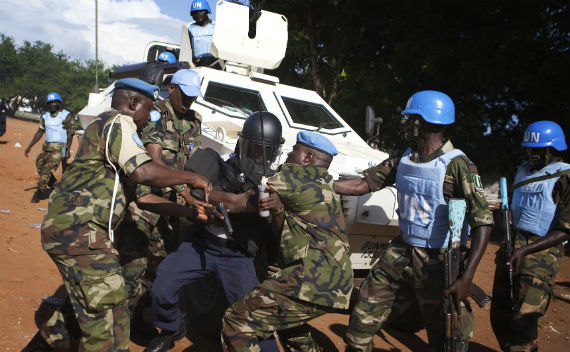Liberia’s Electoral Stand-off
More on:

Neither President Ellen Johnson-Sirleaf nor her presidential challenger Winston Tubman are adding to their personal luster following the Liberian elections. Johnson-Sirleaf is defending the Liberia National Police shutdown of three opposition media entities (a radio station and two television networks) that reported on the riot in which three people died the day before the elections. In an address to the nation, President Johnson-Sirleaf said the police moved to "prevent incitement." But, the Press Union of Liberia does not accept that justification and has urged her administration to stop intimidation of the media.
For his part, in a positive step, Winston Tubman late last week seemed to accept, albeit grudgingly, the results of the election, even though he and his party had boycotted it. He acknowledged that the Johnson-Sirleaf government had international recognition and therefore he and his party must work with it. However, over the weekend, he seemed to back away from healing gestures. He described President Johnson-Sirleaf and her party as "election hijackers" and called for new protests that he and his running mate, George Weah, would personally lead. He said, according to the press, that the elections were "a political farce of the highest order and must not be allowed to stand," and claimed to be reviewing his legal options. He called for new elections in a month’s time.
International election observers praised Liberia’s elections, as they did those in Ivory Coast in 2010 and in Nigeria in 2011. But foreign observers perforce do not see everything, and in Ivory Coast the losers, supporters of Laurent Gbagbo, fought a civil war and ultimately lost. In Nigeria the election results are not widely accepted in the Muslim North. The losing presidential candidate, Muhammadu Buhari, does not accept their validity either and is challenging them, thus far, only in the courts.
The truth about the quality of Liberia’s elections is obscure. But, like Gbagbo and Buhari, Tubman and his supporters clearly believe them to have been fraudulent. The question will be whether Tubman continues to push for new elections and mobilizes his supporters in the streets. That would be a setback for Liberia’s fragile recovery from many years of warlordism. On the other hand, President Johnson-Sirleaf does not foster opposition acceptance of her government by shutting down media outlets.
More on:
 Online Store
Online Store